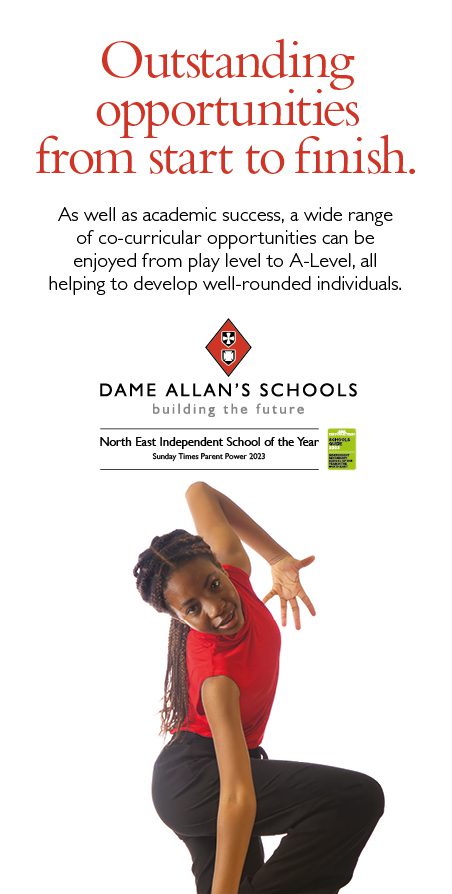By Geoffrey Stanford, Headmaster, Royal Grammar School, Newcastle.
This year, we are celebrating the 500th anniversary of the Royal Grammar School Newcastle, which makes the school one of the oldest learning institutions in the country.
While RGS received the Royal Charter from Elizabeth I in 1600, the school only moved to its current site in Jesmond in 1906. Over the centuries, RGS has undergone many transformations, and this ability to adapt underpins its enduring success. Today, the RGS is widely recognized for its academic achievements, though this has not always been the case. It may also seem surprising when I emphasize that academic results should be the consequence of a good education, not its purpose.
That is not to say that our results do not matter. In fact, this year, not only did RGS students achieve record results but we have also received a Diamond award from Alps Education (the UK’s top analytics platform for tracking students’ academic progress) for our ‘value added.’ By this measure, relative to schools with students of equivalent academic ability, our A-level results were in the top 10 per cent nationally and our GCSE results were in the top 1 per cent nationally, including for those with SEND needs. In other words, not only do we have a highly academic cohort but students at all levels of ability achieve their potential and their results are over and above what students of similar ability elsewhere achieve.
It is only right that I celebrate the success of three particular students: one achieved the top mark in the country for Computer Science A-level; a second managed the same feat for English A-level; and a third was the only person in the country to score 100% in Further Maths A-level with a perfect 300/300. Having such talent brought together in the same place is an extraordinary privilege, creating positive momentum. Indeed, just recently, all those who were interviewed at Oxford received offers, with Cambridge due to announce their places at the end of the month. However, I am equally proud of those who achieve lesser results with just as much, if not more, effort. I value the journey of those who take different routes through university or recognise that the best route for them is straight into the workplace, perhaps through degree apprenticeships.
Just as every child is different, no two paths through life will be the same. Some will follow tried and tested routes, while others will have careers in jobs that we cannot yet imagine. In each case, the education we provide has to set them up for future success by teaching them a whole range of things beyond just achieving high grades in exams. These include developing a set of values to live by, the ability to work alongside other people, the critical thinking skills to address problems, and the resilience to cope when things are tough. Much of this growth happens in the classroom, but just as much is gained beyond it – on the sports pitch, on stage, during a Duke of Edinburgh expedition, or helping others through service activities.
In many ways, exams are a rite of passage for young people and good academic results undeniably serve as a stepping stone towards future success; but they only take you so far. Few meaningful achievements in life come from an individual working alone in an exam hall. True success depends on the collective effort of people working together toward a shared goal. We therefore aim to ensure that our students can serve in and lead teams, sharing responsibility for and coping with failure when it comes. They will be learning from and bouncing back from disappointments along the way, and, in doing so, they will be putting into practice some of the best lessons that a good education can provide.
www.rgs.newcastle.sch.uk

